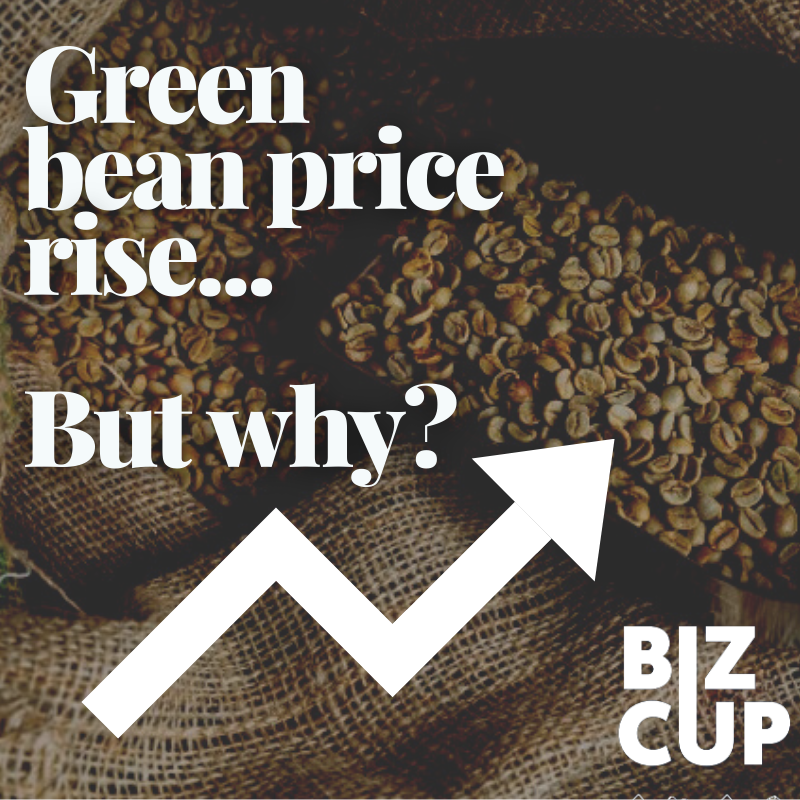The price of green coffee beans has started to spike. But why?
The sudden increase has three main reasons: poor harvest, supply chain issues, and increased demand.
With a lack of rainfall in Brazil, the world’s largest producer of coffee beans, and transportation issues in countries that are also major producers, such as Colombia and Vietnam, prices have spiked almost double in the past year.
Farmers in Brazil have been preparing for the worst harvest in 20 years, and the harvest is expected to drop by the largest amount since 2003, according to the Department of Agriculture.
In Colombia, anti-government and workers’ rights protests have stuck beans at ports. In Vietnam, the rising freight cost because of COVID-19 has also made getting coffee beans to their intended destination more expensive. As a result of these coffee bean price increases, when buy the best coffee beans for your workplace coffee machine, you may experience an increase in the price per gram.
Fertiliser Shortages
The slow production of nitrogen-based fertilisers causes the scarcity of fertilisers due to COVID-related restrictions. Furthermore, the international shipping crisis has caused a sharp decrease in chemical imports. These factors and the fluctuating price of green coffee have led to ongoing concerns and uncertainty for coffee exporters.
Shipping Costs
Due to port bottlenecks, Brazilian coffee exporters have faced difficulties shipping millions of coffee bags in recent months. As a result, the shipment time for Brazilian coffee has increased by as much as 200%, with usual 30-day shipping times now taking up to 100 days.
Base Price Of The Cherry
Specialty coffee has taken a back seat as the base price of the cherry is already considerably higher. Great news in the short term for farmers!
Unseasonal Weather
The coffee crop production in Colombia decreased by 10% due to the effects of ‘La Nina’, a weather pattern caused by variations in ocean temperatures. In addition, excessive rainfall and a global fertiliser shortage have adversely affected Colombian coffee crops’ current and future yields. Rising fertiliser costs have made farmers more hesitant to produce coffee, increasing production costs.
Meanwhile, Brazilian coffee crops suffered a significant decline in supply due to frost and the worst drought in nearly 90 years, resulting in an estimated 30% reduction in crop yield. Similarly, Indian coffee crops also experienced a decrease in supply due to excessive rainfall, which affected their yields.
Are you looking for high-quality office coffee machines for your workplace in Adelaide? Look no further than Biz Cup! Our coffee machines are perfect for offices of all sizes and will impress your employees and clients. With various options, you can find the perfect machine to fit the needs and budget of your workplace.
Give us a call: 1800 249 287
Email us: [email protected]


